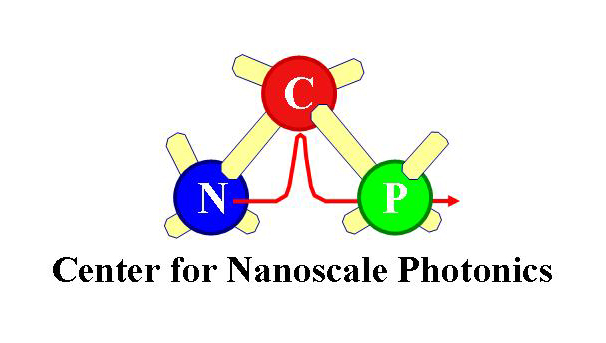| |
DOD Center for Nanoscale Photonics
The Army Research Office awarded The City College of New York (CCNY) a grant of $4 million for five years to establish the Center for Nanoscale Photonics (DoD-CNP). The Center's Director and Principal Investigator is Professor Robert R. Alfano. The Center brings together two frontier technologies: Nanotechnology and Photonics of the 21st century. Nanotechnology introduces nanometer-scaled systems, such as single atoms, molecules, complexes, or artificial atoms (i.e. quantum dots) as basic structural components. It promises the ability to control system architecture and properties at the atomic scale. Photonics is the science and technology of generating and harnessing light and other forms of radiant energy whose quantum unit is photon.
The mission of the DoD-CNP is to:
- Conduct cutting edge research using state-of-the-art equipments to develop nanoscale photonic materials and devices for military, medical, and commercial applications;
- Establish an innovative education and outreach program that promotes student participation in research to increase the number of science and engineering students, including female and underrepresented minority groups, at the high school, undergraduate, and graduate (masters) levels.
The Center focuses on the following four areas of cutting-edge research:
- New glass ceramic materials are being developed here for enhanced near-infrared lasers and amplifiers that could revolutionize optical communications and metrology, remote sensing and biomedical imaging, including potential new techniques for detecting cancers and sensing biomedical contaminants in the environment.
- Semiconductor quantum-dot hetero-structures employed for improved photodetectors and emitters are being developed that could be used for chemical and biological sensing of warfare agents, missile warning systems for IR countermeasure, cancer diagnosis and corrosion detections among many other applications.
- New hybrid materials based on inorganic quantum dots in the organic host materials could enable the Center to develop new lasers, light emitting diodes, display devices because of improved oscillator strength, better optical nonlinearity, and energy transfer properties.
- Microscopy and nanoscale imaging combined with different time-resolved spectroscopic techniques have enabled the Center to control light and matter coherently that have manifold applications ranging from coherent tomography to quantum cryptography.
|
Last Updated: 02/26/2020 13:51
